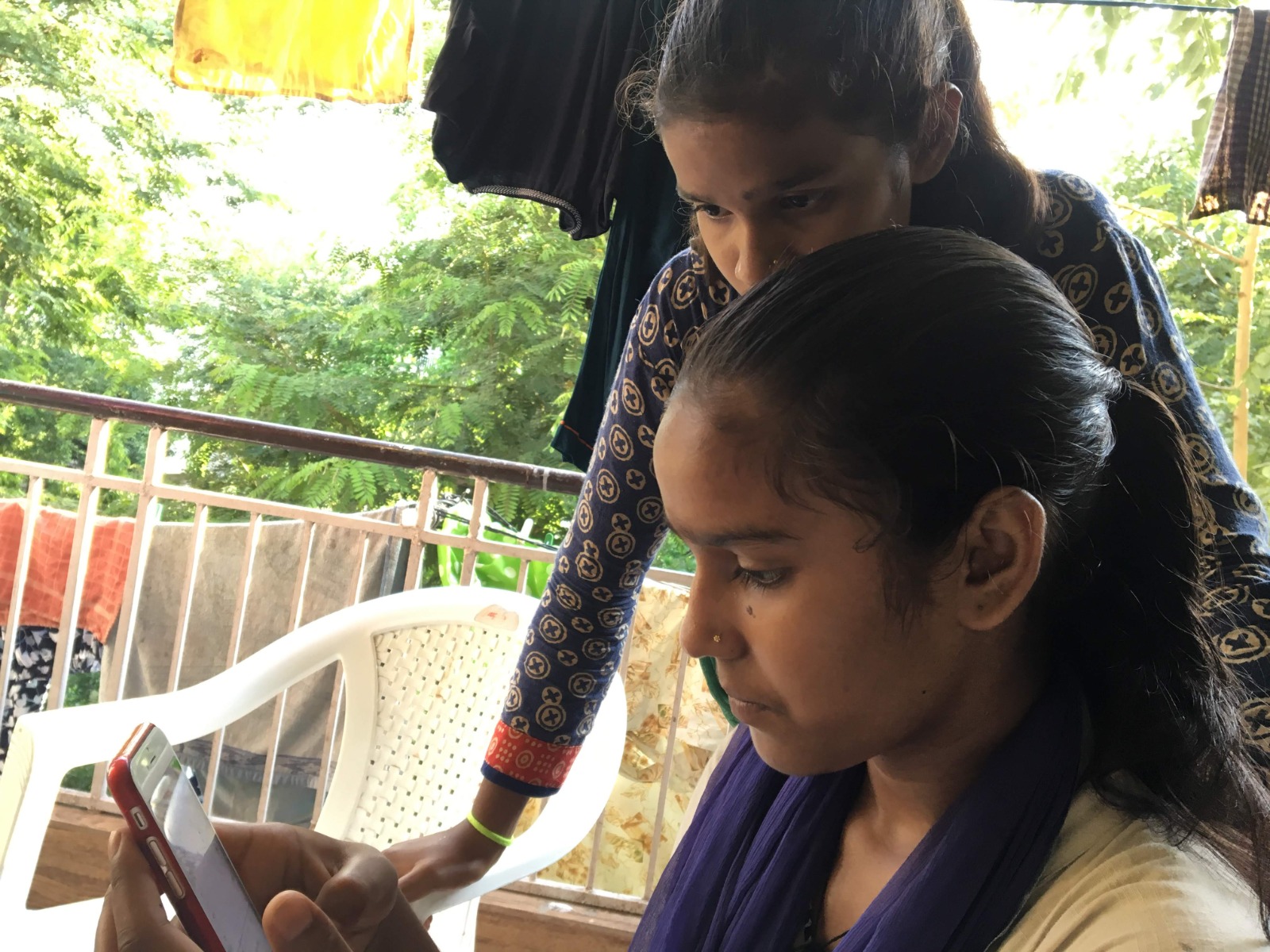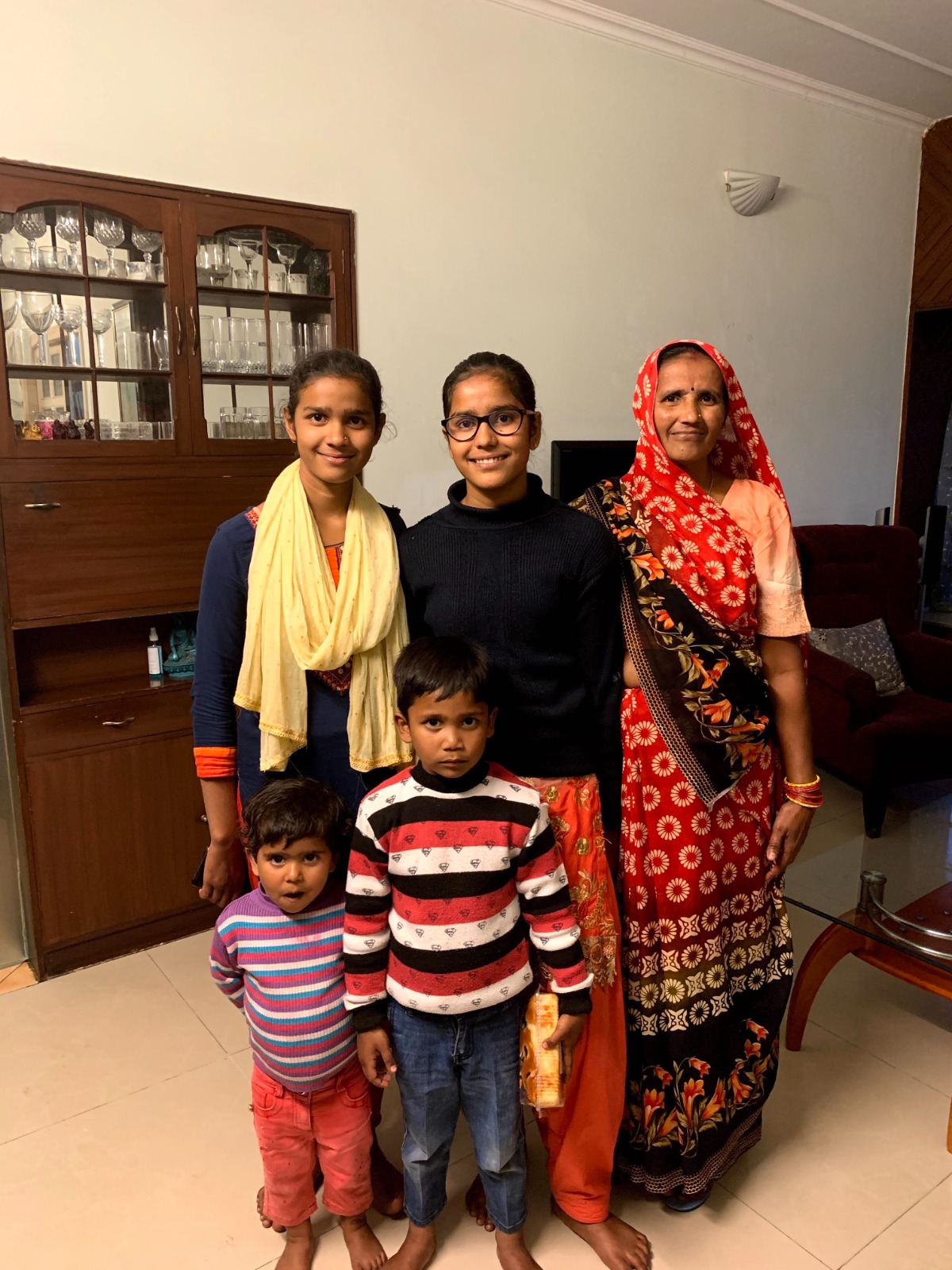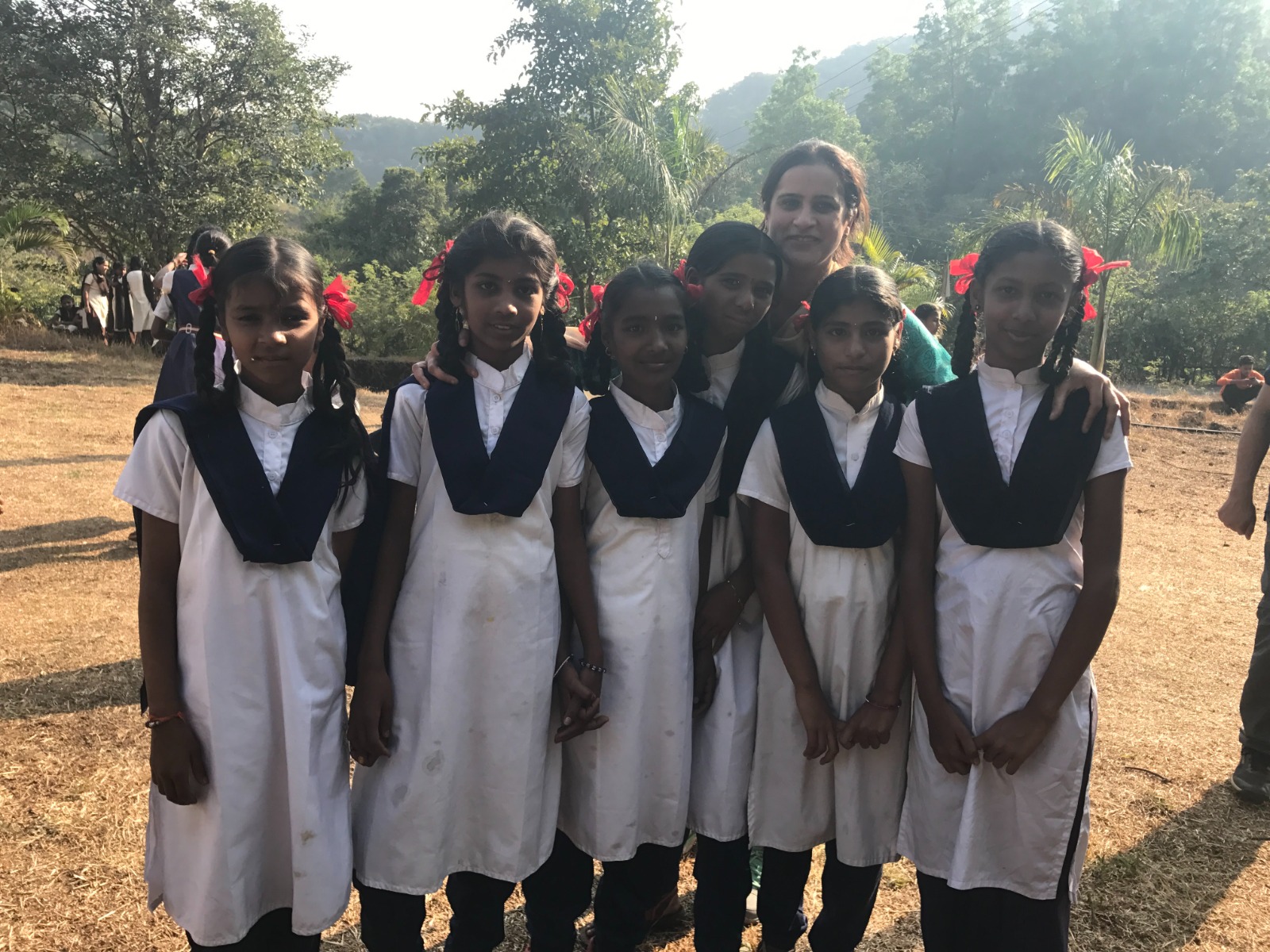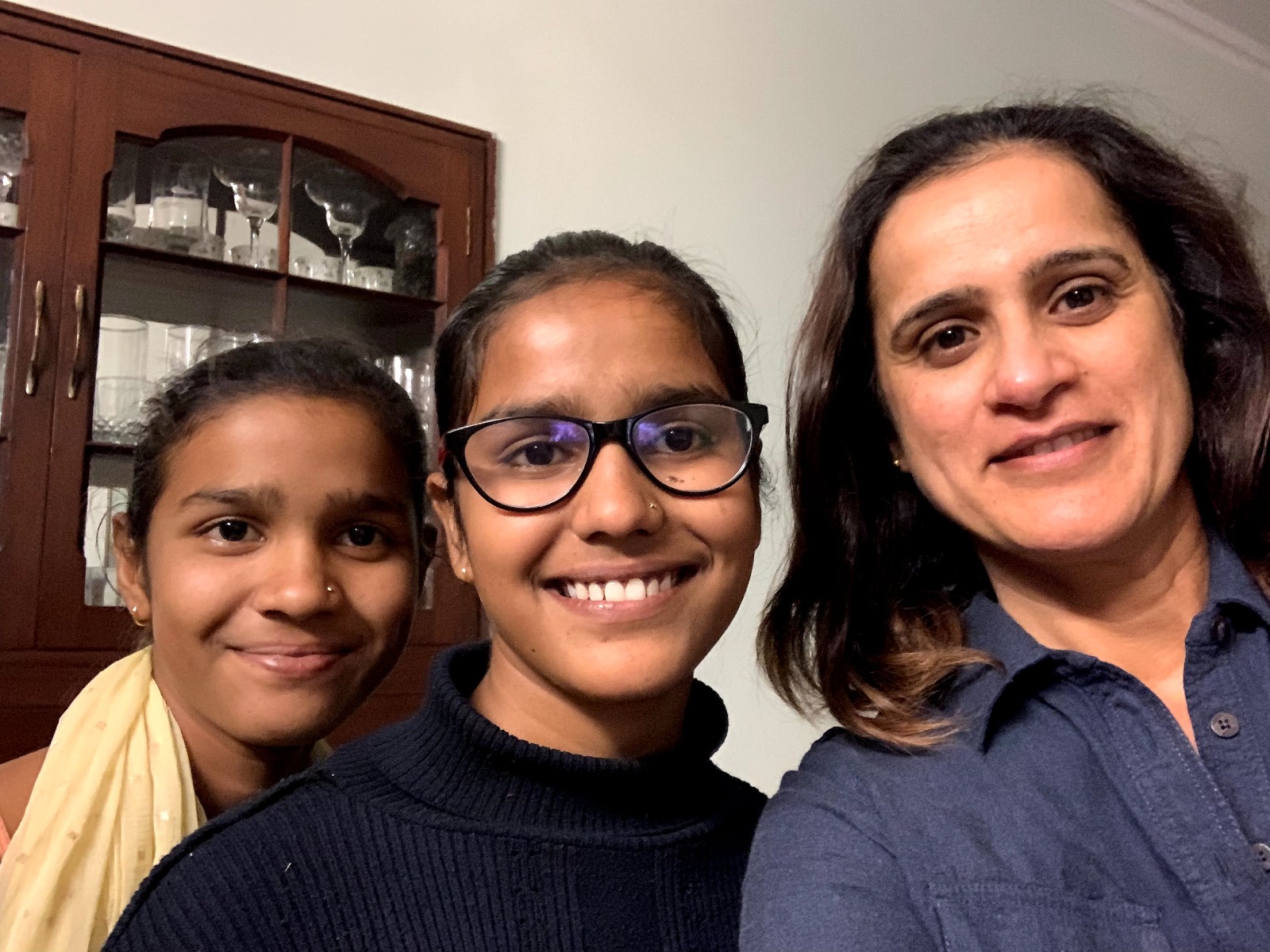From 13000 Kms Away, NRI Helped 5 Kids Stay In School. Here’s How You Can Too
Two decades after moving away from home, Shaloo Jeswani, an NRI based in the US, has been helping families in India not just financially but also by being a mentor to them.

One of the best outcomes of technological advancements and social media is the blurring of boundaries and distance. The world is becoming a global village and Shaloo Jeswani (48), who has spent two decades of her life in the US, agrees completely.
After having worked with an IT company for many years, she decided to take a break from work and leveraged the power of technology and social media to bring about a meaningful change in people’s lives.
Shaloo has created a mentoring network for the underprivileged to provide them with the right knowledge, support, and most of all – a means to bond.
Speaking to The Better India, Shaloo says that the class divide that is prevalent in India is something that prevents people from making real progress. While many provide money and financial support, she firmly believes that people need to take time to listen to how the other half lives.
It all began when, like many other Non-Resident Indians (NRI), Shaloo would make an annual trip back to her hometown in Delhi. Here, she would often strike up conversations with the domestic staff in her parents’ home and says that those conversations were very telling of the situation in India. “Year after year, I would have these conversations and while the intention was also to find ways to help, I never did. Three years ago, something changed, and with the way in which WhatsApp and technology is used in India, it became so much easier to give wings to my little plan.”
Lending a Listening Ear

Sitting miles away in the US, Shaloo was able to forge a lovely relationship with the daughters of the domestic staff in her parents’ home. “What I started off with is just connecting with them on a call and speaking to them once a week. These conversations were just a way for me to stay in touch and find out how the girls were doing in school — whether they needed help or if they wanted to share something that happened with them.”
What Shaloo started doing was fill the gaps that she felt the girls were facing – both in academics and in their social growth. From filling out forms for college to connecting them with the right people to get more information on a subject, Shaloo is now in touch with five such families in Delhi.
“The first family I started working with was one with five sisters,” Shaloo recalls.

“I started speaking with the two youngest girls. They are both in a Hindi medium government school in Delhi in Class 9 and 10, respectively.”
While Shaloo is also providing the girls with financial assistance, she says that what they really need is guidance. “A month’s math tuition fees for the girls is about the same amount that one would pay for an hour of tutoring in the US. So, while I am providing them with financial assistance, this is so much more than that for me — helping them strive to lead better lives,” she says.
Since Shaloo is a mother to two teenage girls herself, having conversations with these young girls was easy. “The conversation was never forced but would flow organically. We would discuss movies, food, school, etc. When I was in India, I also spent a lot of time with them and took them out to give them different experiences,” says Shaloo.
It was during one such outing that Shaloo got to witness the unwelcome glances from the ice cream parlour owner, which made the girls uncomfortable. “It breaks my heart to see the biases and disparities people have based on one’s socio-economic status. While things are changing with more jobs opening up and a change in people’s mindset, it seems to be a very slow process,” she says.
Raj, another young girl whom Shaloo supports, is a single girl in her early 30s. Shaloo says, “You will find her zipping fast on her bicycle in and around the Vasant Kunj area of Delhi. She works as a cook in several homes and supports her alcoholic father, younger sister and brother. Her sole aim is to ensure that her sister, Khushi, is able to build a meaningful life for herself. It is for this reason that she has chosen to stay single as well.”
During one of her visits to Delhi, Shaloo met and spoke with Raj a few times and that is how their connection started. The lockdown was rather harsh on Raj and her family, with her younger brother dying by suicide. “All through that period, I kept calling and checking in on Raj. It would be a brief conversation but it gave her a sense of security.”
A Community of Support

Yet another family that Shaloo has been supporting is that of Seeta, who has two young kids to support. “With Seeta, I have been helping with trying to figure out which schools in Delhi her kids can apply to, filling out the application forms and understanding government policies to make it easier for them to access education.” Every now and then, Shaloo also sends them books and gifts that the kids cherish and wait for.
“The bond I have forged with them is just so beautiful. On one of my birthdays, one of the girls made and sent a card that was bigger than the one my own daughter made,” she chuckles. “I am happy that they have become part of my life and I am part of theirs.”
What Shaloo did was to create a small community. “Once I was back in California, I continued to stay in touch with them through WhatsApp calls and constant messages. Every small milestone that they achieved, they shared with me and that is how we created a strong bond,” she says.
Subsequently, over the past two years, Shaloo has connected with five such families, each of them unique in their own way.

She says, “Besides the chit-chat and laughter, I’ve tried to make myself available to them for any kind of help. These are hard working people with pride. They are not looking for free money but some support and guidance. A common theme among all of them is that none of the parents went to school beyond middle school. So, if all stays good, their kids will be the first generation to complete their schooling and, hopefully, college. I would consider this to be a huge accomplishment.”
Shaloo is not alone in this endeavour.
She says, “My whole family is involved in these relationships. Sometimes, when I am on a video call with one of the girls, my husband pops in to sing for them. Both my daughters are also involved and know the girls well.”
She adds, “Imagine if each of us would bond with five such families, this could be an endless chain of support. A chain of ek ka paanch (1 to 5), that touches many families. We could make this world a better place. I know many of my friends have the intention to help and are looking for ways to do so. I find this to be a very easy way to help and feel so much gratification with these relationships.”
From being called ‘chocolate wali aunty’ to trivial fights over who gets to speak to Shaloo first when they video call – Shaloo says that the association with these people has been so heartwarming. She says, “Along with opening up your purse strings, try and open up your hearts as well. That support is bound to take these girls a very long way.”
Here’s how you can do something similar:
1. Every time you visit India, try and have multiple conversations with the support staff at home. Understand their pain points and see if you can offer a solution to that.
2. Make this a long-term commitment. Try to be there for the person you are supporting more than just providing financial assistance. Get as involved as you can in their day-to-day lives.
3. Look beyond the financial help. It’s the additional resources that you need to help them through.
4. Keep your ears open. Do not be patronising. It is important to understand that the world they come from might be so different from your own reality. While neither of you can step into the other’s shoes, it is essential for you to be empathetic.
(Edited by Yoshita Rao)
If you found our stories insightful, informative, or even just enjoyable, we invite you to consider making a voluntary payment to support the work we do at The Better India. Your contribution helps us continue producing quality content that educates, inspires, and drives positive change.
Choose one of the payment options below for your contribution-
By paying for the stories you value, you directly contribute to sustaining our efforts focused on making a difference in the world. Together, let’s ensure that impactful stories continue to be told and shared, enriching lives and communities alike.
Thank you for your support. Here are some frequently asked questions you might find helpful to know why you are contributing?


This story made me
- 97
- 121
- 89
- 167











